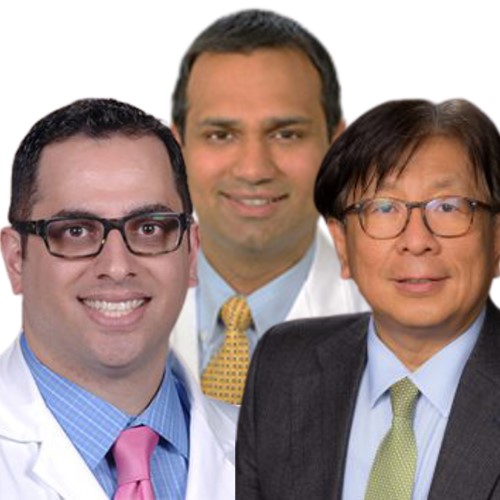Maxillary Tumor Surgery - Past, Present and Future
Speaker

Rabie M. Shanti, DMD, MD holds a dual appointment in the Department of Oral and Maxillofacial Surgery at Penn Dental Medicine, and the Department of Otorhinolaryngology/Head and Neck Surgery at Penn Medicine. Dr. Shanti’s clinical expertise includes the evaluation and surgical treatment of tumors of the head and neck, such as, benign tumors of the jaws (e.g., ameloblastoma, myxoma), malignant tumors of the jaws (e.g., osteosarcoma, chondrosarcoma), oral (mouth) cancer, and oropharyngeal (throat) cancer. In addition, Dr. Shanti frequently evaluates and manages advanced inflammatory conditions of the jaws, such as, osteoradionecrosis, and medication related osteonecrosis of the jaw. Dr. Shanti’s clinical practice is also devoted to microvascular reconstructive surgery of the head and neck following oncologic surgery, radiation injury, or trauma.
In addition to his clinical activities, Dr. Shanti is involved in both clinical and translational research efforts that aim to enhance the efficacy of current treatment paradigms, as well as in the development of innovative treatment strategies for patients with benign and malignant tumors of the head and neck.
Myung (Brian) Chang, DDS, FACP, FAAMP has participated in research projects as follows: (1) Clinical outcome of dental implants for head and neck cancer patients; (2) Analysis of dental education and curriculum; (3) Biomechanical research – Finite Element Analysis and (4) Application of the Novel 3D digital technologies into surgical and prosthetic reconstruction for patients with head and neck cancer or craniofacial anomalies.
Neeraj H. Panchal, DDS, MD,MA received his medical degree from the University of Texas Southwestern Medical School—where he completed an internship in general surgery, followed by training in oral and maxillofacial surgery at Parkland Hospital in Dallas—and received his DDS from Columbia University College of Dental Medicine. In addition to seeing patients with general facial and oral surgical concerns, Dr. Panchal’s clinical interests include orthognathic surgery, obstructive sleep apnea surgery, bone grafting, dental implant surgery, head and neck pathology, reconstruction, craniofacial trauma.
Disclosure: Drs. Shanti, Chang, and Panchal have no relevant financial relationships to disclose.
Course Description
Penn Dental Medicine and the Pennsylvania Dental Association partnered on this course to discuss neoplasms of the maxilla, the role of prosthetic rehabilitation and the role of implants in complex maxillary reconstruction ranging from the atrophic maxilla to the maxillectomy patient.
Educational Objectives
- Understanding and defining degrees of atrophy of the maxilla and defects of the maxilla
- Identify surgical techniques to overcome challenges with a lack of bone in the maxilla
- Demonstrate various implant techniques including sinus lifting, vertical and horizontal augmentation, traditional dental implants, piriform implants, pterygoid implants and zygomatic implants
- Dilineate the positives and negatives of an obturator based implant reconstruction versus a flap-based implant reconstruction of the maxilla
- Learn the "belt and suspenders" technique for long term implant success in the compromised maxillax
Contact
For information, please contact Penn Dental Medicine Continuing Dental Education at:
PDMContinuingEd@dental.upenn.edu

